If you’re a gardener, then you know that pests can be a big problem. No one wants to spend their time gardening only to have it destroyed by insects! In this blog post, we’ll discuss six common garden pests and how to prevent them from wreaking havoc on your garden. We’ll also provide some tips for dealing with an infestation if it does occur. So, whether you’re just starting out in gardening or you’ve been at it for years, be sure to read this post!
Aphids
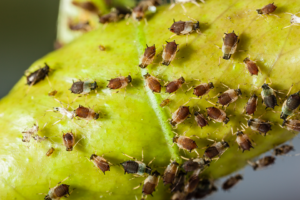
One of the most common garden pests is the aphid. Aphids are small, soft-bodied insects that come in a variety of colors. They feed on plant sap, which can cause leaves to wilt and discolor. Aphids also produce a sticky substance called honeydew, which can attract other pests and promote the growth of sooty mold.
Prevention is the best method of dealing with aphids. To prevent them from infesting your garden, start with clean plants. Be sure to remove any debris or dead leaves from around your plants, as this can provide a hiding place for aphids. You should also check your plants regularly for signs of aphids. If you do find them, be sure to remove them immediately.
There are a number of different methods you can use to control aphids. One is to introduce natural predators, such as ladybugs, into your garden. You can also try spraying your plants with water or an insecticidal soap. For a more natural approach, you can try mixing up a solution of garlic, water, and dish soap and spraying it on your plants.
Spider Mites
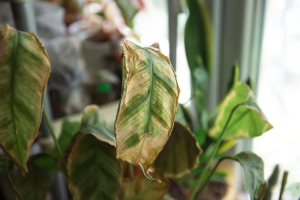
Spider mites are never a pleasant thing to come across in your garden. These tiny arachnids are difficult to see with the naked eye, but they can cause a lot of damage to your plants. Spider mites feed on plant sap, which can cause leaves to turn yellow and eventually drop off. They also produce webbing, which can make your plants look unsightly.
To prevent spider mites from infesting your garden, start with clean plants. Be sure to remove any debris or dead leaves from around your plants, as this can provide a hiding place for spider mites. You should also check your plants regularly for signs of spider mites. If you do find them, be sure to remove them immediately.
There are a number of different methods you can use to control spider mites. One is to introduce natural predators, such as ladybugs, into your garden. You can also try spraying your plants with water or an insecticidal soap. For a more natural approach, you can try mixing up a solution of garlic, water, and dish soap and spraying it on your plants.
Caterpillar
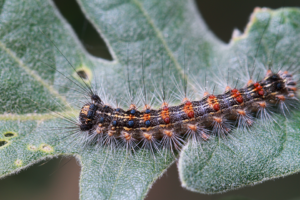
Another common garden pest is the caterpillar. Caterpillars are the larvae of moths and butterflies, and they can do a lot of damage to your plants. They feed on leaves, which can cause them to become ragged and eventually drop off. In addition, caterpillars produce silk, which can attract other pests and promote the growth of sooty mold.
To prevent caterpillars from infesting your garden, start with clean plants. Be sure to remove any debris or dead leaves from around your plants, as this can provide a hiding place for caterpillars. You should also check your plants regularly for signs of caterpillars. If you do find them, be sure to remove them immediately.
There are a number of different methods you can use to control caterpillars. One is to introduce natural predators, such as ladybugs, into your garden. You can also try spraying your plants with water or an insecticidal soap. For a more natural approach, you can try mixing up a solution of garlic, water, and dish soap and spraying it on your plants.
Cucumber Beetle
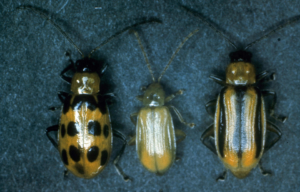
Another common garden pest is the cucumber beetle. Cucumber beetles are small, yellowish-green insects with black stripes. They feed on a variety of plants, but they’re especially fond of cucumbers, melons, and squash. Cucumber beetles can cause a lot of damage to your plants, as they chew holes in the leaves and fruits. In addition, cucumber beetles can transmit diseases from plant to plant.
As with aphids, the best way to deal with cucumber beetles is to prevent them from infesting your garden in the first place. To do this, start with clean plants. Cucumber beetles like to lay their eggs in debris or dead leaves, so be sure to remove any from around your plants. You should also check your plants regularly for signs of cucumber beetles and remove them immediately if you find any.
There are a number of different methods you can use to control cucumber beetles. One is to introduce natural predators, such as ladybugs, into your garden. You can also try spraying your plants with water or an insecticidal soap. For a more natural approach, you can try mixing up a solution of garlic, water, and dish soap and spraying it on your plants.
Tomato Hornworm
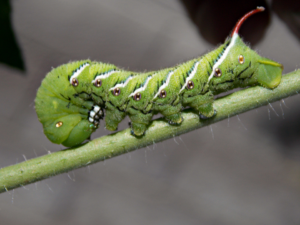
You might also come across a Tomato Hornworm. The Tomato Hornworm is a larva of a hawk moth. It’s one of the most destructive pests that can infest a garden, as it feeds on both the leaves and fruits of plants. Tomato hornworms can grow up to four inches long and are usually green with white stripes.
The best way to deal with a Tomato Hornworm is to catch it early. Look for signs of damage, such as chewed leaves or fruits with bite marks. If you see a Tomato Hornworm, remove it immediately and dispose of it. You can also try spraying your plants with water or an insecticidal soap. For a more natural approach, you can try mixing up a solution of garlic, water, and dish soap and spraying it on your plants.
Cutworms
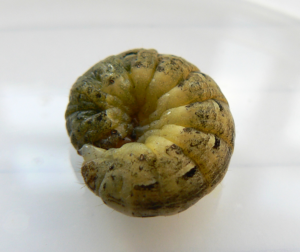
Another common garden pest is the cutworm. Cutworms are small, brownish-black caterpillars that feed on a variety of plants. They’re especially fond of young plants, as they can easily cut through the stems. This can cause serious damage to your plants and make them more susceptible to disease.
To prevent cutworms from infesting your garden, start with clean plants. Be sure to remove any debris or dead leaves from around your plants, as this can provide a hiding place for cutworms. You should also check your plants regularly for signs of cutworms and remove them immediately if you find any.
There are a number of different methods you can use to control cutworms. One is to introduce natural predators, such as birds, into your garden. You can also try spraying your plants with water or an insecticidal soap. For a more natural approach, you can try mixing up a solution of garlic, water, and dish soap and spraying it on your plants.
Whiteflies
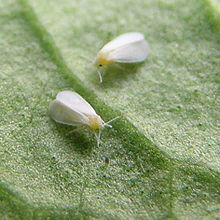
One final common garden pest is the whitefly. Whiteflies are small, white insects that feed on plant sap. They can cause leaves to yellow and drop off, and they also produce a sticky substance called honeydew, which can attract other pests and promote the growth of sooty mold.
To prevent whiteflies from infesting your garden, start with clean plants. Be sure to remove any debris or dead leaves from around your plants, as this can provide a hiding place for whiteflies. You should also check your plants regularly for signs of whiteflies and remove them immediately if you find any.
There are a number of different methods you can use to control whiteflies. One is to introduce natural predators, such as ladybugs, into your garden. You can also try spraying your plants with water or an insecticidal soap. For a more natural approach, you can try mixing up a solution of garlic, water, and dish soap and spraying it on your plants.
Protect your Garden; Prevent Pests
These are just a few of the many different pests that can infest a garden. By being vigilant and taking preventive measures, you can avoid most garden pests. However, if you do find yourself with an infestation, there are a number of methods you can use to get rid of them.
By following these simple tips, you can keep your garden free of pests all season long! Try out different methods and see what works best for you and your plants. With a little effort, you can enjoy a beautiful, bountiful garden all season long.

